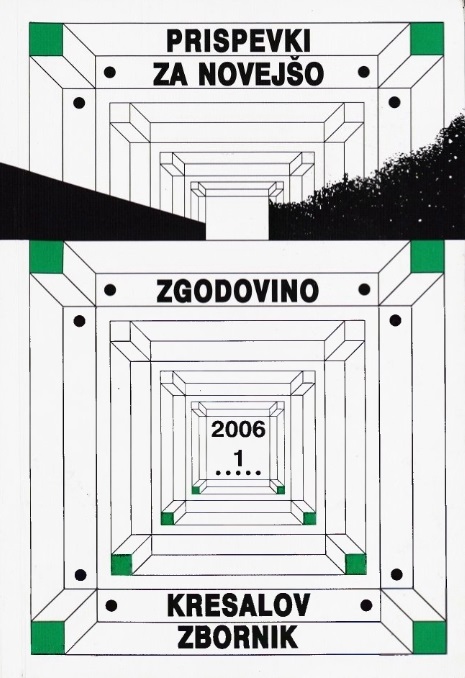Slovenski liberalci in narodno vprašanje v letih 1931-1933
Slovene Liberals and the National Question between 1931 and 1933
Author(s): Jurij PerovšekSubject(s): Political history, Social history, Government/Political systems, Politics and society, Interwar Period (1920 - 1939), Sociology of Politics, Politics and Identity
Published by: Inštitut za novejšo zgodovino
Keywords: Kingdom of Yugoslavia; King Alexander's dictatorship; Yugoslavism; national question; Slovenism; unitarism; Yugoslav National Party; Yugoslav Radical Peasant Democracy; Liberalism; Ljubljana;
Summary/Abstract: The prevailing political orientation among the Liberals between 1931 and 1933 was that of Yugoslav unitarism. This orientation was supported by the Yugoslav Radical Peasant Democracy (YRPD), in which the Slovene Liberals had been politically organised since 1932. The YRPD was the only political party tolerated by the royal dictatorship introduced on 6 January 1929. In mid 1932, the party sharply reacted to the book Kulturni problem slovenstva (The Cultural Problem of Slovene Identity) by Josip Vidmar, a literary critic of liberal orientation. In his book, Vidmar had attacked the Liberals for their political view that Slovene national awareness was overstrained, forced and anti-state. Vidmar was supported by a group of prominent cultural figures who, in 1933, had founded their own journal Sodobnost (Modernity) and established the view among the majority of the Slovene Liberal intelligentsia that the loss of Slovene identity was detrimental and suicidal. Meanwhile, the Slovene faction of the YRPD strengthened its unitarist principles. In early 1933, Vidmar took a tough stand against the so-called Ljubljana Punctuations, a federalist constitutional programme shaped by the leadership of the abolished, Catholic-orientated, Slovene People's Party (SPP); the most prominent leaders of the former SPP were confined in different parts of the country because of the Punctuations. Unhesitatingly, the Liberals supported the unitarist national programme of the new Yugoslav National Party (YNP), into which the YRPD transformed on 20 July 1933. In the YNP, they occupied several leading positions. The political situation in the country at the time indicated that the future only favoured Yugoslav unitarism. It was with this conviction that Slovene Liberals entered in the period that followed the foundation of the YNP.
Journal: Prispevki za novejšo zgodovino (before 1960: Prispevki za zgodovino delavskega gibanja)
- Issue Year: 46/2006
- Issue No: 1
- Page Range: 255-276
- Page Count: 22
- Language: Slovenian

